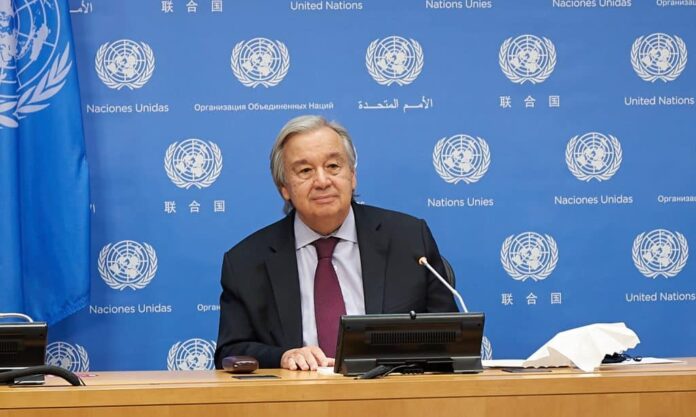The Secretary-General of the United Nations, António Guterres, has urged all nations to come together and put an end to nuclear testing once and for all.
In a powerful statement released by Guterres on Thursday, August 29, 2024, as the world celebrates International Nuclear Day, he called upon nations to end nuclear testing.
“In the name of the victims of nuclear tests and future generations, I call on all countries whose ratification are needed for the Comprehensive Nuclear-Test Ban Treaty (CTBT) to enter into force immediately and without conditions,” Guterres declared.
He noted that the repercussions of these tests are profound, with vast areas rendered uninhabitable and generations suffering from health problems linked to radiation exposure.
“As the world reflects on this dark history, there is a growing concern that calls for the resumption of nuclear testing, indicating a troubling trend of forgetting the painful lessons learnt from the past,” he added.
He further stated that the CTBT stands as the only international agreement prohibiting all nuclear testing and is recognized as a vital, verifiable security tool.
He, however, noted that despite its importance, the treaty has yet to be fully ratified and brought into force, leaving a gap in global nuclear disarmament efforts.
His call to action resonates with advocates and organizations worldwide who are rallying for a future free from the threat of nuclear weapons and their devastating consequences,” Guterres said.
“As nations reflect on the impact of past nuclear tests, the hope is that this international day against nuclear tests will serve as a catalyst for change, inspiring a renewed commitment to disarmament and the protection of our planet for future generations,” he remarked.
Over the past eight decades, more than 2,000 nuclear tests have been conducted at over 60 sites globally, leaving a devastating legacy of destruction and long-term health issues for countless communities.















